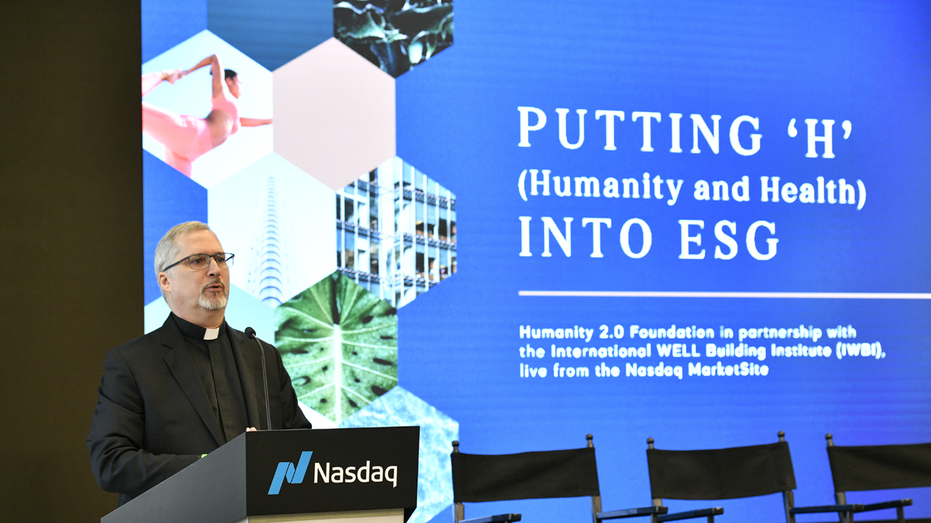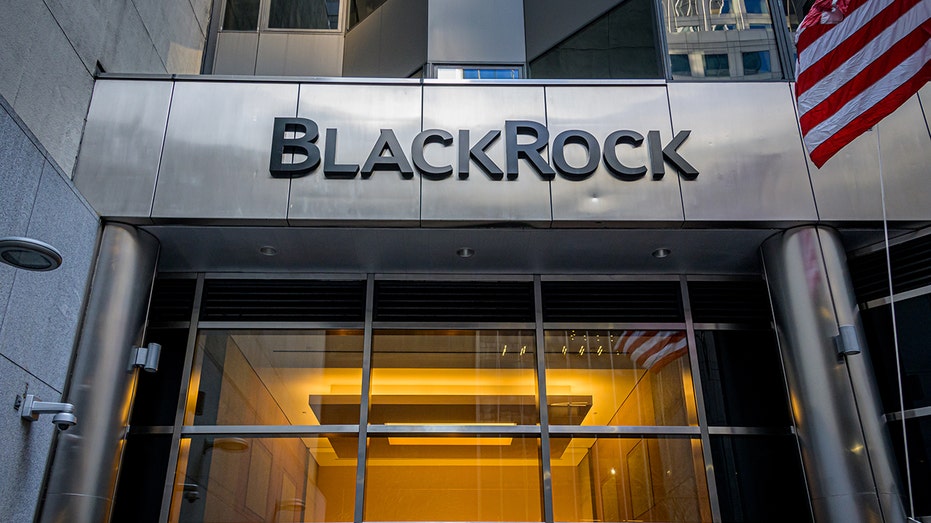What is ESG? Investing with environmental, social and governance in mind
One problem with ESG is that it is 'not very well defined,' argued AEI scholar Paul Kupiec
GOP mounts counteroffensive to Wall Street's ESG investing trend
FOX Business senior correspondent Charlie Gasparino details the Republican pushback to Wall Street's environmental, social and corporate governance strategy on "Cavuto: Coast to Coast."
Environmental social and corporate governance — commonly referred to as ESG — are non-financial standards used by asset managers and investors in financial decision-making.
ESG investing is sometimes referred to as sustainable investing or impact investing, and investors can use ESG standards and criteria to screen potential investments and monitor non-financial risks.
Environmental factors analyze how a corporation interacts with the environment. Criteria may include climate change, greenhouse gas emission, pollution or deforestation. Environmental factors may also analyze what risks the company faces from the environment, such as hurricanes or global warming.
Social criteria analyze a company’s relationship with its stakeholders and community. Criteria may include how the company contributes to nonprofit organizations or whether it encourages employees to spend time volunteering. Social factors also take into account how the company interacts with employees and whether it treats its workers and customers ethically.
BANK CEOS TO FACE CONSEQUENCES OF ‘PLAYING POLITICAL GAMES’ OVER ESG ISSUES: FL BANKING EXEC
Governance refers to how the corporation is run, and whether its leadership acts in an ethical way. Governance standards may include the makeup of the board of directors, use of political contributions or potential illegal activity.

Workers arrive at Goldman Sachs headquarters in New York City on Wednesday, June 15, 2022. The Securities and Exchange Commission is looking into whether some investments for the funds are in breach of ESG metrics promised in marketing materials, one (Photographer: Michael Nagle/Bloomberg via Getty Images / Getty Images)
AEI Senior Fellow Paul Kupiec said one drawback of ESG is that it is "not very well defined."
"What is socially beneficial is really subject to your personal interpretation," he said, noting that the social part of ESG standards can change over time.
The subjective element of ESG makes it difficult to give out ratings, Kupiec added. "That’s not a good thing, because people are going to be making investment choices based off these ESG ratings, which are all over the place," he said. "There’s no rhyme or reason to some of these ratings, yet the firms that invest based on them are picking and choosing investments based on this criterion that is not well defined or well measured."
There were more than 600 ESG raters and raging systems globally as of 2018, according to The Sustainability Institute from ERM.
MARLO OAKS: WHY I OPPOSE ESG - USE POLITICS, FREE MARKETS TO DECIDE POLICY, NOT COERCION

Chairman of Humanity 2.0 speaks as Humanity 2.0 Foundation and International WELL Building Institute present Putting "H" (Humanity & Health) Into ESG at NASDAQ MarketSite on February 28, 2022 in New York City. ((Photo by Eugene Gologursky/Getty Images for Humanity 2.0 Foundation ) / Getty Images)
"The most important thing for people to understand is that ESG is a form of investing where the focus is on implementing certain environmental, social and governance – social and political – goals, as opposed to enhancing returns for investors, which is a big change from the way investing has been done historically," Andy Puzder, a visiting fellow at the Heritage Foundation, told Fox News Digital.
An increased focus on ESG reporting and investing has led brokerage firms and mutual fund companies to offer financial products dedicated to ESG investing. There are now nearly 700 ESG ETFs (ESG exchange-traded funds) in the United States alone, according to Fortune.
The popularity of ESG investing is a "recent bubble," Allen Mendenhall, Associate Dean and Grady Rosier Professor at Troy University’s Sorrell College of Business, told Fox Business. However, he added, ESG’s long-term prospects are "probably bleak."
Puzder pointed to a letter from 17 state attorneys general to BlackRock CEO Larry Fink pushing back on the asset manager's commitment to ESG as evidence of backlash against prioritizing ESG in investments.
Dalia Blass, BlackRock's head of external affairs, responded to the attorneys general, saying they misinterpreted the company's ESG policies, and that climate change is becoming a major risk that investors want to be apprised of.
ALLEN MENDENHALL: POST ESG-ERA FOR CORPORATIONS, INVESTMENT NEARS
"ESG is a major cause of the energy crisis in Europe (which the Russia-Ukraine conflict compounded)," Mandenhall added. "The implementation of ESG has led to rampant corruption and unethical behavior. Corporations will play the ESG game without a sincere commitment to any of the three prongs of ESG. Adopting ESG can help companies with marketing and branding while allowing them to conceal shady practices and avoid media or regulatory scrutiny."
"Many corporations pursue ESG merely for compliance purposes or under pressure from large asset management companies that use their proxy power to bully boards of directors," Mendenhall added.
SEC'S PROPOSED ESG RULE WILL LEAVE SMALL FARMS IN THE LURCH, LAWMAKERS FROM BOTH PARTIES SAY

BlackRock offices in New York City. (Erik McGregor/LightRocket via Getty Images / Getty Images)
CLICK HERE TO READ MORE ON FOX BUSINESS
More than 90% of S&P 500 companies and 70% of Russell 1000 companies provide ESG reports, according to a 2021 Governance and Accountability Institute report.
"The important thing to understand is you can no longer invest as you did in the past," Puzder said. "The firms that you used to trust to invest your funds as prudent investors are now acting as political activists, or even leftist crusaders."




















